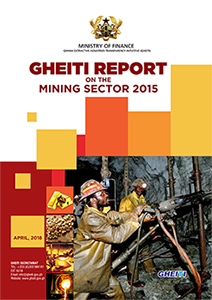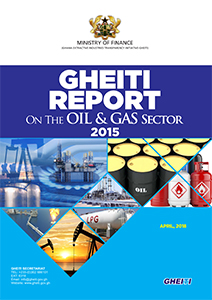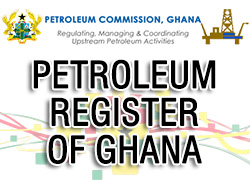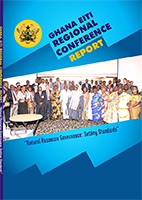| Government urged to ensure transparency in the management petroleum resources |
 |
 |
 |
|
The Institute of Economic Affairs has called on the government to ensure transparency in the collection, disbursement and use of petroleum revenues. This, the Institute said could be achieved by making public all the documentation that form part of the oil bidding and licensing processes, as well as committing to an open and participatory planning and budgeting in advancing the country's development agenda. According to the Institute, prudent and transparent management of the oil and gas sector would ensure that Ghana does not repeat its past mistakes in the management of the mining sector and also will help to avoid the 'oil curse' as has been experienced in other African countries which have mismanaged their oil resources.
"There is no doubt that oil stands as the linchpin of the economy of many countries around the world. But, given that the competition for the control of oil wealth has fuelled ethnic and political violence in many oil producing countries especially in Africa, including Nigeria's Niger Delta region, where tensions continue to rise between foreign oil corporations and a number of ethnic groups, there is a need to ensure a sound legal and policy governance framework to prevent oil related abuses that have plagued so many other oil producing countries in Africa," Prof. John Asafu-Adjaye, Senior Research Fellow at the TEA told participants at a recent stakeholders meeting in Accra. Speaking on the theme, "Towards Transparency and Accountability in the Oil and Gas Industry," Prof. Asafu-Adjaje encouraged Ghanaians to demand transparency on resource extraction and also to monitor the revenue streams in ensuring that public funds were used to meet the basic needs of society. "Hopefully the passage and implementation of the Freedom of Information Bill will improve information flow, "he added. On the application of oil and gas revenues, Prof. Asafii-Adjaye urged that they be used to fund demonstrable social projects such as health, education, housing, employment, water, sanitation, among others, which in his view will benefit the majority of Ghanaians. According to him, there was the need for a long term vision towards creating a strong macroeconomic context by also investing in physical infrastructure, value addition, diversification of economy, as well as save for the future. Welcoming the provision in the Petroleum Revenue Management law purporting to set up a Heritage Fund, he said the Fund could be used to generate a long¬ term, alternate stream of income to support public expenditures and as a means of saving for future generation. Visibly unenthused about the opportunity the law provides to collateralize the annual budget funding amount stipulated by the law, he cautioned that failure of the economy to absorb both the petroleum revenues and loans contracted by the government on the back of collateralized petroleum revenues would likely lead to the 'Dutch disease' effects and other macroeconomic slips, and thereby make Ghana a convenient candidate for the 'resource curse' club With regards to local content, Prof. Asafu-adjaye stressed that local communities must benefit, and that more than ever, the policies, plans, and programmes must be for the ultimate benefit of the people. He continued that government must develop and implement a fiscal regime that would make the sector attractive t investors as well as capture as much o the economic rent as possible in the form of taxes and royalties. He challenged the government to b strong in its negotiations with multinational corporations and to ensure an appropriate royalty structure so that the country gets the best and fair price for the sale of its oil and oil rights. The process to achieving this, he said, must be both transparent and inclusive. Source: Public Agenda |










